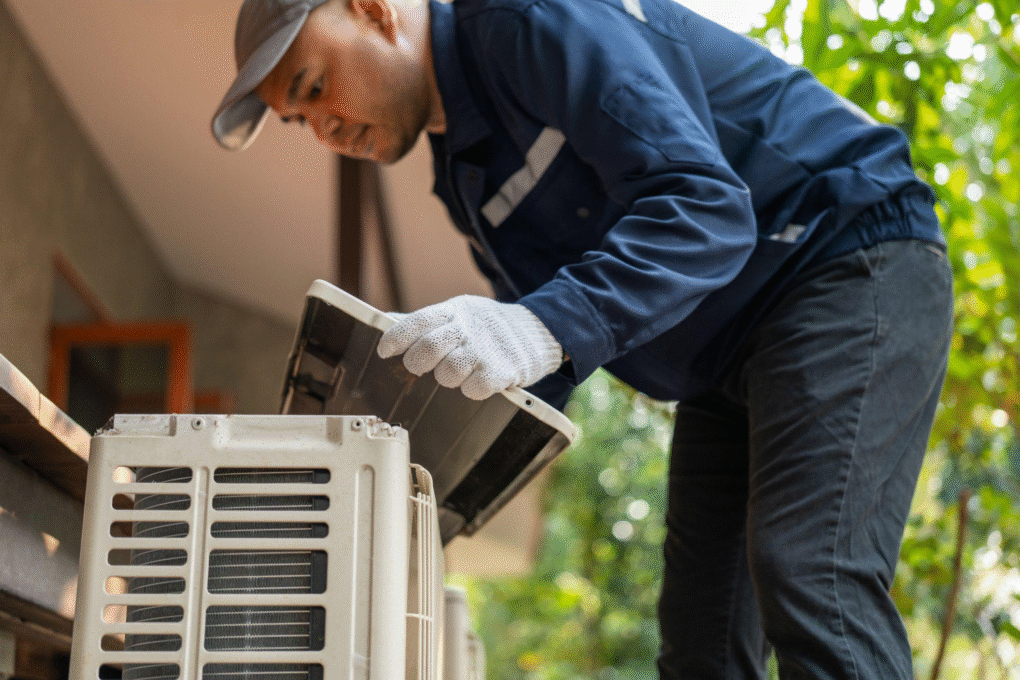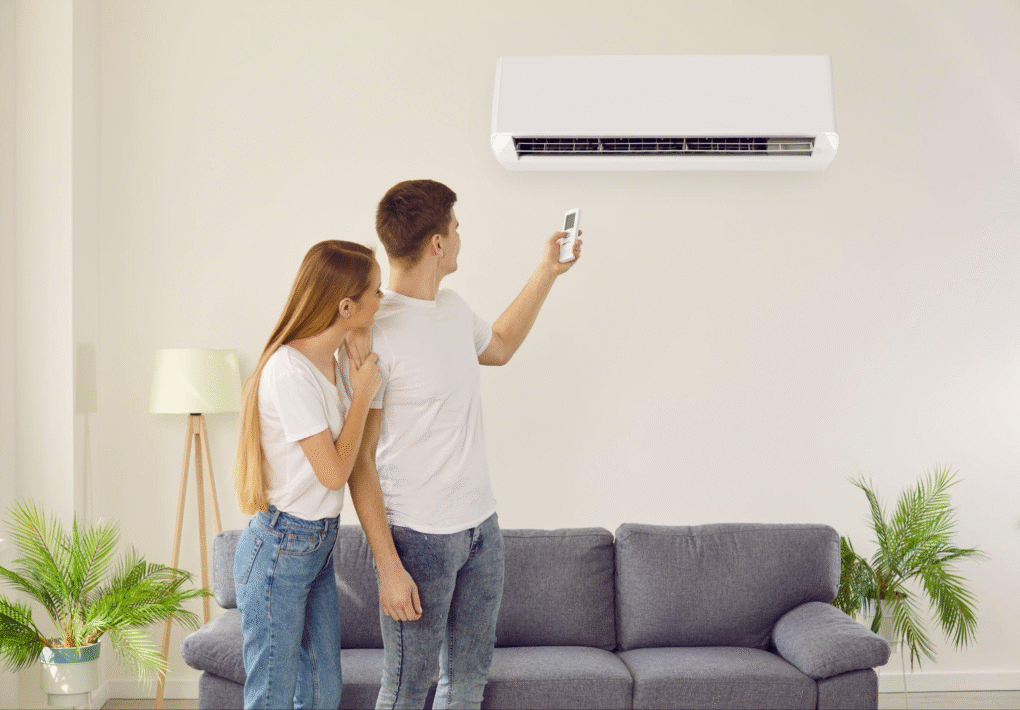
Selecting the best air conditioners for homes in colder climates requires balancing energy efficiency, home size, and budget. High-efficiency systems, including central air conditioners and heat pumps, offer reliable cooling while reducing long-term costs. Proper sizing and professional installation are crucial to ensure optimal performance. By evaluating your home’s unique needs and consulting trusted resources, you can achieve a comfortable living space with a system designed to meet modern energy standards.
Table of Contents
- Understanding Your Cooling Needs in Harsh Climates
- Key Factors to Consider When Selecting an Air Conditioner
- Energy Efficiency: Why It Matters for Long-Term Savings
- Types of Air Conditioners: Which One is Suitable for You
- Final Thoughts on Selecting the Best Air Conditioners for Calgary Homes
When summer heat rolls in, a reliable cooling system becomes essential for maintaining comfort at home. However, choosing the right air conditioner involves more than just picking the first model you see. Factors like energy efficiency, home size, and budget are critical to finding a system that performs effectively year-round.
For homeowners in regions with fluctuating weather, selecting a unit designed to handle these conditions is key to achieving consistent comfort. When exploring options for best air conditioners for Calgary homes, it’s important to consider factors like energy efficiency, home size, and budget to ensure you find a system that meets your unique needs.
From central air conditioners to energy-saving heat pumps, understanding your choices ensures you make a decision that balances comfort and cost-effectiveness. Proper sizing and professional installation further enhance performance, making them vital considerations in your search for the ideal cooling solution.
Understanding Your Cooling Needs in Harsh Climates
Selecting the right air conditioning system begins with understanding your home’s unique cooling requirements. Harsh climates, characterized by fluctuating temperatures, demand systems that can adapt to both scorching summers and unpredictable weather patterns.
The first step is evaluating your home’s square footage, as larger spaces often require units with higher cooling capacities. Additionally, factors such as insulation quality, ceiling height, and the number of windows can significantly impact how efficiently an air conditioner performs. To make an informed decision, consider these key points:
- Energy Efficiency Ratings: Look for systems with high SEER (Seasonal Energy Efficiency Ratio) ratings, which indicate better performance and lower energy consumption.
- Home Layout: Open-concept designs may benefit from central air conditioning, while smaller or segmented spaces might be better served by ductless mini-split systems.
- Budget Constraints: Balancing upfront costs with long-term savings is crucial. High-efficiency models may have a higher initial price but can reduce monthly energy bills over time.
Proper assessment ensures you choose a system that aligns with your lifestyle and comfort needs. Consulting with HVAC professionals can further clarify which options best suit your home’s specific conditions.
Key Factors to Consider When Selecting an Air Conditioner
Choosing the right air conditioner involves more than simply picking a model off the shelf. With so many options available, it’s essential to evaluate your home’s specific needs and match them with the features offered by modern cooling systems. From energy efficiency ratings to system types, understanding these factors ensures you make an informed decision that aligns with your comfort and budget goals.
One of the most critical considerations is the size and layout of your home. A unit that’s too small will struggle to cool larger spaces, while an oversized system can lead to inefficiencies and uneven temperature distribution. Professionals often assess square footage, insulation quality, and even ceiling height to recommend the ideal system for your space.
Additionally, newer technologies like heat pumps provide dual functionality, offering both heating and cooling capabilities, making them a versatile choice for homes in regions with fluctuating weather patterns. Here are some other key factors to keep in mind:
- Energy Efficiency Ratings: Look for models with high SEER (Seasonal Energy Efficiency Ratio) ratings, which indicate better performance and lower energy consumption. These systems may have a higher upfront cost but can save money over time through reduced utility bills.
- Budget and Financing Options: While premium models offer advanced features, they may not always fit every budget. Many homeowners opt for financing plans that allow for manageable monthly payments without compromising on quality.
- Brand Reputation and Warranty: Trusted brands often provide reliable systems backed by comprehensive warranties, ensuring peace of mind for years to come.
Taking the time to evaluate these aspects helps ensure your chosen system meets your expectations for comfort, efficiency, and long-term savings. Consulting with HVAC professionals can further clarify which options best suit your home’s unique conditions.
Energy Efficiency: Why It Matters for Long-Term Savings
When selecting an air conditioning system, energy efficiency should be a top priority. Not only does it reduce your environmental footprint, but it also translates to significant long-term savings on utility bills. Modern cooling systems, especially those designed for regions with fluctuating weather, often come equipped with advanced features that maximize performance while minimizing energy consumption.

High-efficiency air conditioners, such as those recommended by trusted HVAC professionals, are rated using the Seasonal Energy Efficiency Ratio (SEER). A higher SEER rating indicates better energy efficiency, meaning the unit uses less electricity to cool your home.
For instance, upgrading from an older model with a SEER rating of 10 to a newer one with a SEER rating of 16 can cut your cooling costs by up to 30%. Additionally, some systems, like heat pumps, offer dual functionality by providing both heating and cooling, making them a versatile and energy-efficient choice for year-round comfort. Here are a few reasons why prioritizing energy efficiency matters:
- Lower Operating Costs: High-efficiency systems consume less energy, reducing monthly utility expenses over the lifespan of the unit.
- Environmental Benefits: Energy-efficient models produce fewer greenhouse gas emissions, contributing to a more sustainable future.
- Access to Incentives: Many regions offer rebates or tax credits for installing high-efficiency systems, further offsetting the initial investment.
For homeowners in areas with extreme weather variations, opting for a system that balances performance with energy savings is crucial. Consulting with experienced technicians can help you identify the best options tailored to your home’s unique needs, ensuring both comfort and affordability.
Types of Air Conditioners: Which is Suitable for You
Choosing the right air conditioning system depends on your home’s size, layout, and specific cooling needs. Below is a comparison table of the most common types of air conditioners, highlighting their key features, advantages, and suitability for homes in regions with fluctuating weather patterns.
| Type | Features | Advantages | Best For |
| Central Air Conditioner | – Cools entire homes through ductwork; – High SEER ratings available. | – Consistent cooling across large spaces; – Quiet operation;- Energy-efficient models reduce utility bills. | – Homes with existing ductwork; – Larger spaces requiring uniform cooling. |
| Ductless Mini-Split | – No ductwork required; – Zoned cooling capabilities. | – Flexible installation options; – Ideal for smaller or segmented spaces; – Energy-efficient zonal control. | – Homes without ductwork; – Additions, basements, or specific rooms needing cooling. |
| Heat Pumps | – Dual functionality (heating and cooling); – Energy-efficient year-round. | – Versatile performance in cold and hot climates; – Lower energy consumption compared to traditional systems. | – Homes in regions with fluctuating weather; – Homeowners seeking both heating and cooling. |
Each type of air conditioner offers distinct benefits depending on your home’s unique requirements. For instance, central air conditioners are ideal for larger homes with existing ductwork, providing consistent cooling throughout the space. On the other hand, ductless mini-split systems are perfect for homes without ducts or for targeting specific areas like basements or additions.
Meanwhile, heat pumps stand out as an energy-efficient alternative, offering both heating and cooling capabilities, making them particularly suitable for homes in regions with extreme weather variations.
To determine which system is best suited for your home, it’s advisable to consult with HVAC professionals. They can assess factors like square footage, insulation quality, and budget to recommend a solution tailored to your needs. This ensures optimal comfort while maximizing energy savings and long-term satisfaction.
Final Thoughts on Selecting the Best Air Conditioners for Calgary Homes
Choosing the right air conditioning system is a decision that impacts both comfort and energy efficiency. By evaluating factors like home size, energy ratings, and system types, homeowners can make informed choices that align with their needs and budget. High-efficiency models, including central air conditioners and heat pumps, offer reliable solutions for homes in regions with fluctuating weather.
Proper sizing and professional installation further enhance performance, ensuring long-term satisfaction. With careful consideration, selecting the best air conditioners for Calgary homes becomes a seamless process.
